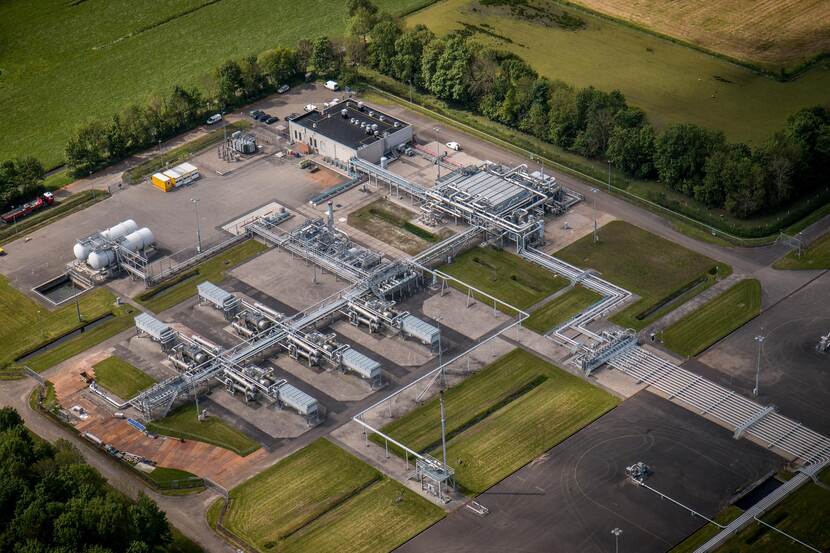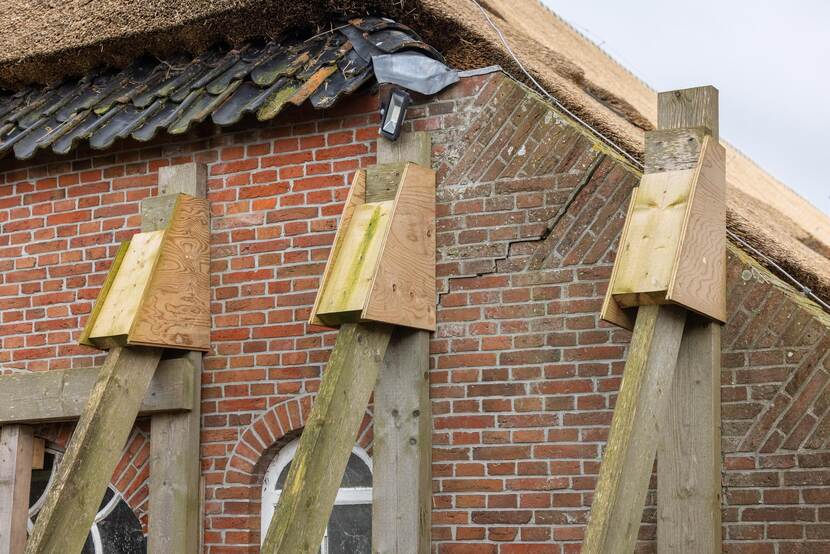Does less Russian gas mean more gas from Groningen?
Rising energy bills and uncertain energy security as a result of the ongoing war in Ukraine are causing much public debate. And questions are being asked about the choices the Dutch government is making – in the Netherlands and in the context of the EU. What is the best way to reduce our dependence on Russian gas? If the crisis worsens, what would be a fair method of distributing the available energy? And why is the Dutch government still standing by its decision to end gas extraction in Groningen in the years ahead? This blog looks at the dilemmas concerning gas extraction in the province of Groningen.
The government wants to reduce our dependence on Russian gas in the short term by finding alternatives and reducing our energy consumption. For the longer term, we will have to speed up the transition to a sustainable energy supply. But we will still need natural gas in the interim. Tapping into our domestic gas reserves might seem like a logical alternative to importing gas from Russia. However, the aim to end gas extraction in Groningen in 2023 or 2024 has not changed. But why is the government intent on this? And what considerations play a role?
Why close down the Groningen gas field?
In 2018 the government decided to phase out gas extraction in Groningen as quickly as possible to reduce the risk of earthquakes and improve safety for the region’s inhabitants. Gas extraction in Groningen goes back to 1959 when the Groningen gas field was discovered. Since then, the field has played a central role in the Netherlands’ energy supply. In 2012, after the heaviest earthquake ever recorded in the province of Groningen, it became clear that gas extraction comes at a price. The earthquake caused a lot of damage to buildings. It is estimated that some 13,000 homes do not yet meet safety standards. This means they could be at greater risk of collapsing if there is another heavy earthquake. That is why the government aims to completely end gas extraction from the Groningen field by 2023, or 2024 at the latest. In the meantime, the government will continue paying damages and reinforcing homes in the region.
How do we weigh up the pros and cons of gas extraction in Groningen in relation to the current crisis?
Increasing the volume of gas extracted from the Groningen gas field will have no effect on prices on the global gas market. But according to the State Supervision of Mines (SODM), it would directly increase the risks to and uncertainty for people living in the producing area. Our country benefited economically from the Groningen field for many years. The full price didn’t become apparent until much later. For people who live in the earthquake-prone area, the drawbacks of gas extraction far outweigh the benefits. Earthquakes occur often, causing damage, safety concerns, stress and declining property values.
Why are there so many drawbacks to gas extraction in Groningen?
Gas extraction from the Groningen field causes earthquakes and thus poses a risk to the safety of local people. Many homes in the producing area do not yet meet safety standards and still need to be reinforced. The earthquakes cause more damage than their magnitude would lead you to expect. This is due to the fault lines in the Groningen subsurface, the type of subsurface and the fact that the earthquakes occur at fairly shallow depths. Earthquake damage to homes also lowers the value of properties in the area. Combined with the often protracted settlement of material damages, the earthquakes also cause immaterial damage to local people, in the form of health issues, lasting uncertainty and fear of new earthquakes. SODM states that there is no safe way to continue extracting gas in Groningen.
Why are the benefits of gas extraction in Groningen insignificant?
The quantity of natural gas being bought and sold on the global gas market is so enormous that increasing the volume of gas extracted from the Groningen field will have no effect on gas prices. Another issue relating to gas supply security is that gas from the Groningen field is low-calorific, while gas on the global market is high-calorific. While appliances in Dutch households are designed to use low-calorific gas, Groningen gas is in fact useless for most European households, businesses and industries. Their appliances and installations are designed to use high-calorific gas, and the two types of gas are not interchangeable. In nitrogen plants we convert high-calorific gas into low-calorific gas that can then be pumped to homes in the Netherlands. Currently the Netherlands exports both low-calorific and high-calorific gas (from smaller fields). Gasunie Transport Services says that the latter is already using nearly all the capacity of our high-calorific gas pipeline network. So extracting more Groningen gas wouldn’t directly benefit the global market, but only reduce domestic demand for imported high-calorific gas in the short term. In the same way, extracting more Groningen gas would have little effect on the European gas market.
Are there scenarios in which the Netherlands would continue gas extraction in Groningen?
This would only be considered if the Dutch population’s safety is at risk. For example, if we have insufficient gas to heat our hospitals or for people to cook their meals. In other words, it should be the very last resort. There are still fears that Russia will completely stop gas transport to Europe for an extended period. Even if this happens, Gasunie forecasts that this will not lead to gas shortages in the Netherlands this winter. However, it does depend on how low the temperature drops and the availability of liquefied natural gas (LNG) from other countries. The Netherlands is therefore still preparing for a gas shortage scenario. We are doing what we can to ensure there is sufficient gas for the coming winter, by importing LNG and encouraging everyone to reduce their energy consumption. The only way that we can in time restore safety and remove uncertainty for people living in the province of Groningen is by ending gas extraction there as soon as possible.

